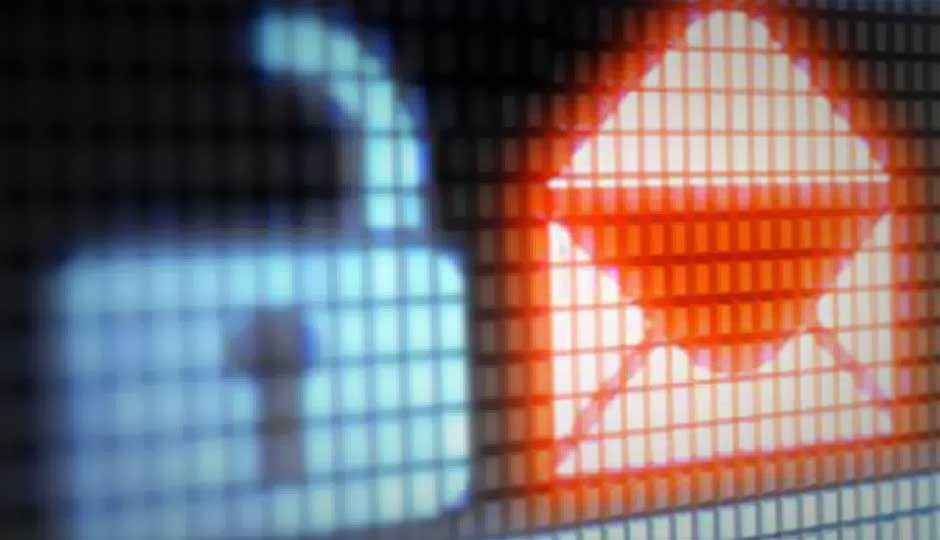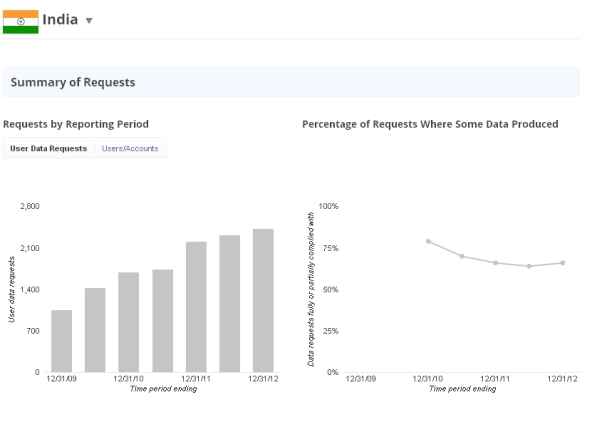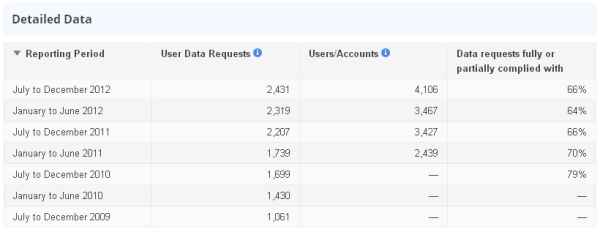India ranks 2nd globally in seeking web user data: Google
Google reveals the Indian government made a total of 4,750 requests to share web users details, only next to the U.S., which made 16,407 requests in 2012.

Despite a lot of hue and cry over Internet censorship in the country, the Indian government has continued to ask Google to share web user details. According to Google, India is only second to the U.S. in terms of seeking users data. In 2012, India made an average of 13 requests a day to Google to share user details. The U.S. made 45 requests a day on an average.
 Survey
SurveyIn total, India made 4,750 such requests to Google in 2012, only second to the U.S’ total of 16,407 requests. With 3,239 requests, France stood third, while Germany’s 3,083, UK’s 2,883 and Brazil’s 2,777 made it to the top five.
Overall, the total such requests rose by 20 percent in 2012 to 42,327. Requests from India also rose by about 20 percent in 2012 as compared to 3,946 in the previous year.
It may be recalled India ranked second in Google’s previous transparency report as well. Google’s data revealed India had made 2,319 requests involving 3,467 users in the first six months of 2012.

Google has already expressed concern on what it calls an ‘alarming’ growth in web censorship across the world.
“Unfortunately, what we’ve seen over the past couple years has been troubling, and today is no different,” Dorothy Chou, Google’s senior policy analyst, had said in a blog post.
“When we started releasing this data, in 2010, we noticed that government agencies from different countries would sometimes ask us to remove political content that our users had posted on our services. We hoped this was an aberration. But now we know it’s not.”

Even though the Indian government has rubbished the notion it was attempting to control the Internet, recent moves indicate it has been trying to put some sort of monitoring mechanism in place, on the grounds of ‘security concerns’.
According to reports, a Central Monitoring System (CMS) will be operational in a limited manner by April this year. The mechanism is aimed at helping the authorities in monitoring phone calls and Internet data in the country.
Moreover, the government is reportedly planning to take possession of the server and other infrastructure set up by the smartphone maker, BlackBerry, in the city of Mumbai. The move is supposed to help the government test the solution offered by BlackBerry for legal interception of Internet communication.
What do you think about the status of Internet freedom in the country? Let us know in the comments section below:
Source: Times of India